Latest News
Uzbek delegation discuss need to strengthen ties with Kabul
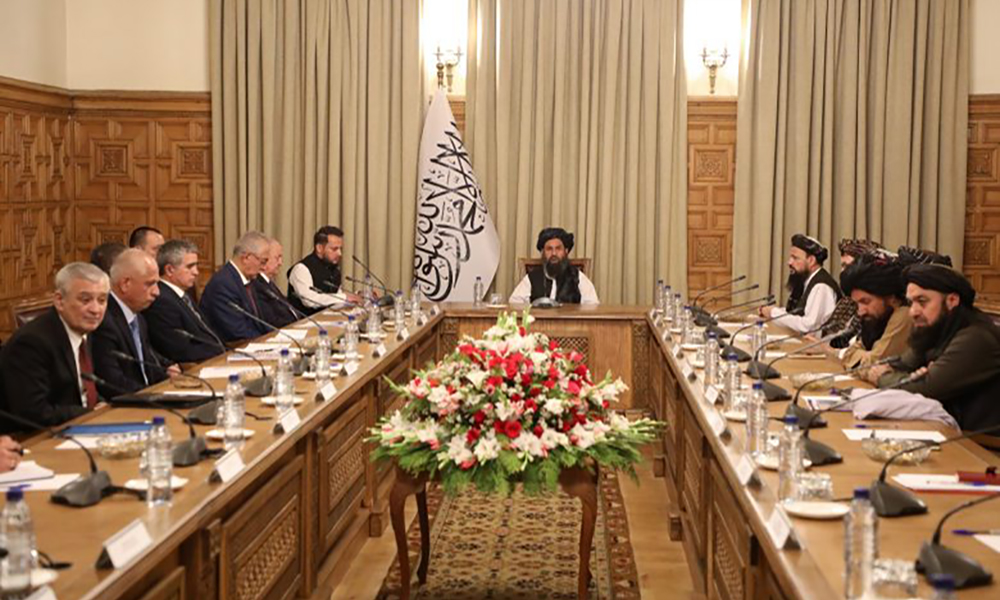
A top delegation led by Deputy Prime Minister Mullah Abdul Ghani Baradar Akhund met with the visiting delegation headed by Uzbekistan’s National Security Council Adviser and the special envoy for Afghanistan Abdul Aziz Kamlov in Kabul to discuss numerous issues including the supply of electricity.
Both delegations discussed political, economic, commercial, transit, railway, and electricity projects in Afghanistan, according to a statement received by Bakhtar News Agency.
“We had good political and economic relations with Uzbekistan and this country is making efforts to further develop these relations,” said Deputy PM Baradar, during the meeting.
He termed Afghanistan as a bridge between South and Central Asian countries, and said that “our country could play an important role in trade and transit between Afghanistan and Uzbekistan.”
He also said the two countries could become two effective economic partners in the region, by using available opportunities.
For his part, Kamlov said its country has supported Afghanistan in international forums and meetings and has strived to protect Afghanistan’s interests in any condition.
Kamlov said that Uzbekistan is ready to cooperate with the Islamic Emirate to get the maximum advantage from the Qosh Tepa Canal.
For his part, Deputy PM Baradar assured the Uzbek side that Qosh Tepa Canal will strengthen bilateral relations between Afghanistan and Uzbekistan and bring these two neighboring countries closer.
The Islamic Emirate is ready to carry out this vital project through mutual understanding, he said.
Meanwhile the delegation met with IEA’s defense minister Mawlawi Mohammad Yaqoub Mujahid and discussed a number of issues. According to the defense ministry, border issues, security and other related matters were discussed and emphasis was placed on strengthening bilateral relations.
Also, Abdulaziz Kamelov, the special representative of Uzbekistan, assured the IEA of their intentions to strengthen relations with Afghanistan in the fields of security, economy, politics and other issues.
Latest News
Blinken unapologetic about ending America’s ‘longest war’ in Afghanistan
Blinken said “in every possible way, the manner in which this (the withdrawal) was done and the state in which Afghanistan has been left could not have been what the United States desired”
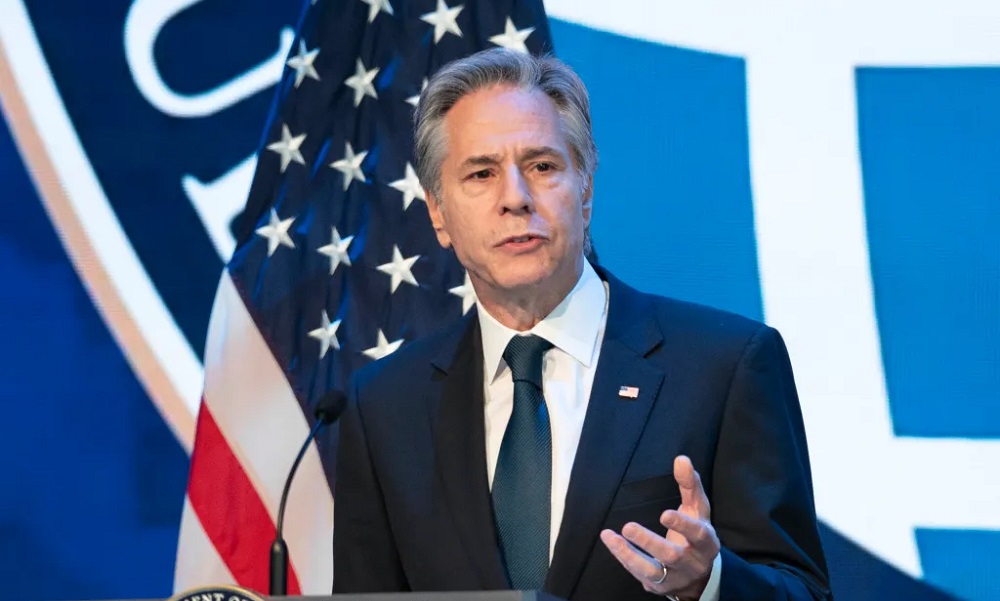
US Secretary of State Antony Blinken said in an interview before exiting the White House that he would not make any apologies for having ending the war in Afghanistan.
Speaking to The New York Times, ahead of the Biden administration's exit, he said: “Americans don’t want us in conflict. They don’t want us in war. We went through 20 years where we had hundreds of thousands of Americans deployed to Iraq and Afghanistan.
“People were tired of that, understandably. Well, when President Biden was vice president, he presided over the end of our engagement in Iraq. As president, he ended the longest war in our history, Afghanistan," he said.
The NYT journalist asked how the Afghanistan "failure" damaged America's credibility.
"First, I make no apologies for ending America’s longest war. This, I think, is a signal achievement of the president’s. The fact that we will not have another generation of Americans fighting and dying in Afghanistan, that’s an important achievement in and of itself," Blinken responded.
He did however state that “in every possible way, the manner in which this (the withdrawal) was done and the state in which Afghanistan has been left could not have been what the United States desired."
"There was never going to be an easy way to extricate ourselves from 20 years of war. I think the question was what we were going to do moving forward from the withdrawal. We also had to learn lessons from Afghanistan itself," Blinken added.
The Biden administration was hit with pushback after the chaotic withdrawal. National Security Adviser Jake Sullivan even reportedly offered to resign over the decision, according to The Washington Post's David Ignatius.
Sullivan also reportedly had concerns about the exit, but ultimately said it would have been challenging no matter what they did.
"You cannot end a war like Afghanistan, where you’ve built up dependencies and pathologies, without the end being complex and challenging," Sullivan told the Post columnist. "The choice was: Leave, and it would not be easy, or stay forever."
Sullivan added that "leaving Kabul freed the [United States] to deal with Russia’s invasion of Ukraine in ways that might have been impossible if we had stayed."
Latest News
Canada PM Trudeau is likely to announce resignation, source says
It remains unclear whether Trudeau will leave immediately or stay on as prime minister until a new Liberal leader is selected, the Globe and Mail report added.
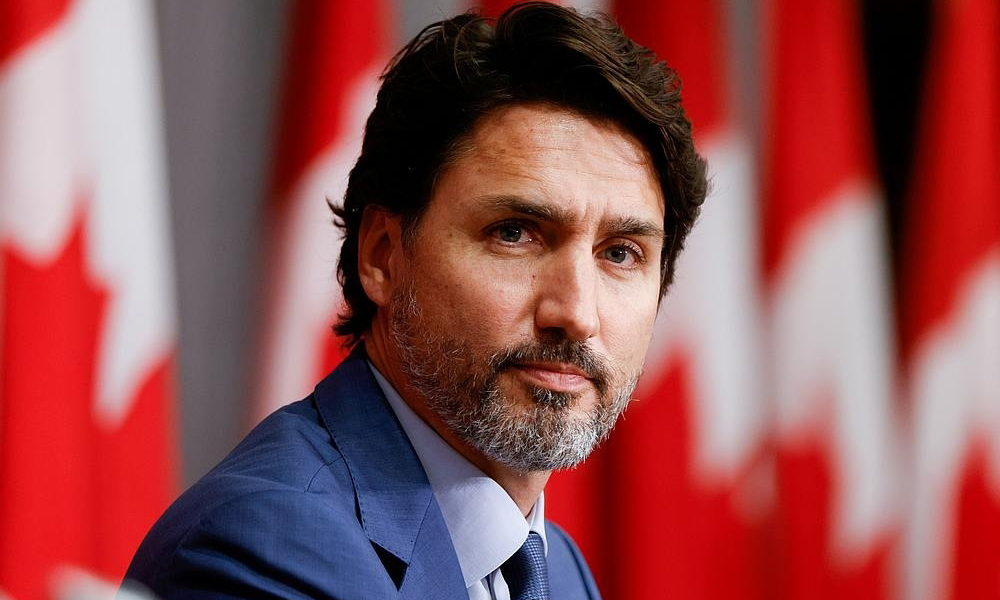
Canadian Prime Minister Justin Trudeau is increasingly likely to announce he intends to step down, though he has not made a final decision, a source familiar with Trudeau's thinking said on Sunday.
The source spoke to Reuters after the Globe and Mail reported that Trudeau was expected to announce as early as Monday that he would quit as leader of Canada's ruling Liberal Party after nine years in office.
The source requested anonymity because they were not authorized to speak publicly.
Trudeau's departure would leave the party without a permanent head at a time when polls show the Liberals will badly lose to the official opposition Conservatives in an election that must be held by late October.
Sources told the Globe and Mail that they did not know definitely when Trudeau would announce his plans to leave but said they expect it would happen before a emergency meeting of Liberal legislators on Wednesday.
An increasing number of Liberal parliamentarians, alarmed by a series of gloomy polls, have publicly urged Trudeau to quit.
The prime minister's office did not immediately respond to a request for comment outside regular business hours. The prime minister's regularly published schedule for Monday said he would participate virtually in a cabinet committee meeting on Canada-U.S. relations.
It remains unclear whether Trudeau will leave immediately or stay on as prime minister until a new Liberal leader is selected, the Globe and Mail report added.
Trudeau took over as Liberal leader in 2013 when the party was in deep trouble and had been reduced to third place in the House of Commons for the first time.
If he does resign, it would likely spur fresh calls for a quick election to put in place a stable government able to deal with the administration of President-elect Donald Trump for the next four years.
The prime minister has discussed with Finance Minister Dominic LeBlanc whether he would be willing to step in as interim leader and prime minister, one source told the newspaper, adding that this would be unworkable if LeBlanc plans to run for the leadership.
Trudeau, 53, had been able to fend off Liberal legislators worried about the polls and the loss of safe seats in two special elections.
But calls for him to step aside have grown since December, when Trudeau tried to demote Finance Minister Chrystia Freeland, one of his closest cabinet allies, after she pushed back against his proposals for more spending.
Freeland quit instead and penned a letter accusing Trudeau of "political gimmicks" rather than focusing on what was best for the country.
Trudeau propelled the Liberals to power in 2015 promising "sunny ways" and a progressive agenda that promoted the rights of women and a promise to fight climate change.
But the everyday realities of governing gradually wore him down and like many Western leaders, the need to deal with the effects of the pandemic ate up much of his time.
Although Ottawa spent heavily to protect consumers and businesses, racking up record budget deficits, this provided little protection from public anger as prices soared.
A botched immigration policy led to hundreds of thousands of arrivals, straining an already overheated housing market.
Latest News
Hanafi calls for China’s cooperation in generating electricity, equipping hospitals in Afghanistan

Deputy Prime Minister for Administrative Affairs Abdul Salam Hanafi in a meeting with the Chinese ambassador in Kabul on Sunday called for China’s cooperation in generating electricity and equipping hospitals in Afghanistan.
According to a statement released by Arg, Hanafi said that China, as a good neighbor, has had trade, economic and political relations with Afghanistan for a long time, and during this time, not even a small problem has arisen between the two countries, rather efforts have been made to expand relations.
He added that the Islamic Emirate of Afghanistan (IEA) wants good relations with all countries, especially its neighbors, and expects them to have good relations with Afghanistan.
In the meeting, the Chinese Ambassador to Kabul, Zhao Xing, said that China and Afghanistan have had relations for 70 years, which shows the depth of relations between the two countries.
He also pointed to the expansion of trade and investment between the two countries and added that the Chinese Embassy in Kabul has issued a large number of visas to Afghan businessmen and citizens in the past year, which indicates the expansion and strengthening of bilateral relations.
The diplomat said that China was ready to build houses for refugees returning from neighboring countries, build cold storages in some provinces for agricultural products, provide health services, survey and extract minerals in Afghanistan.
-

 Latest News4 days ago
Latest News4 days agoMinistry: $1 billion invested in Afghanistan’s poultry production sector
-
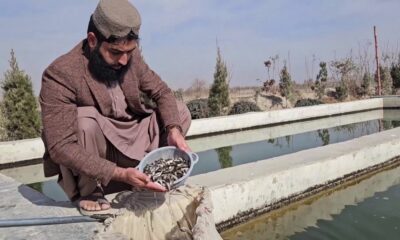
 Latest News4 days ago
Latest News4 days agoDeclining water levels affect 50 percent of fish farms in Kandahar
-
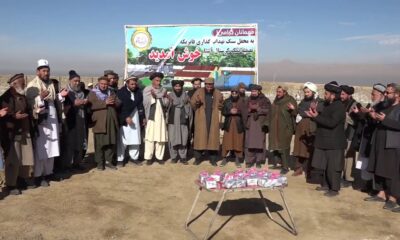
 Latest News4 days ago
Latest News4 days agoSalt refinery plant to be built in Takhar province
-

 World4 days ago
World4 days agoUS vet formerly deployed in Afghanistan rams truck into New Orleans crowd, killing 15
-

 Sport4 days ago
Sport4 days agoAfghanistan set for second test against Zimbabwe in Bulawayo
-

 Latest News4 days ago
Latest News4 days agoHostility towards Afghans has spread to Pakistani Pashtuns: Gandapur
-
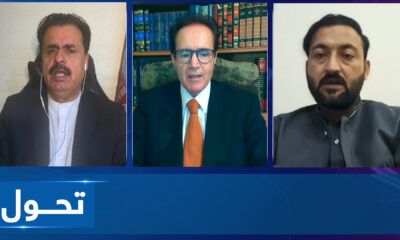
 Tahawol3 days ago
Tahawol3 days agoTahawol: IEA’s response to accusations of Pakistan
-
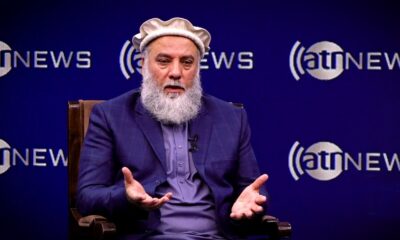
 Latest News3 days ago
Latest News3 days agoAzizi expresses concern, says Afghans invested billions in neighboring countries
























